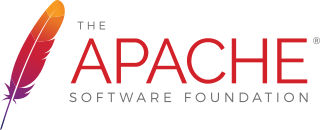
Free software, libre software, libreware sometimes known as freedom-respecting software is computer software distributed under terms that allow users to run the software for any purpose as well as to study, change, and distribute it and any adapted versions. Free software is a matter of liberty, not price; all users are legally free to do what they want with their copies of a free software regardless of how much is paid to obtain the program. Computer programs are deemed "free" if they give end-users ultimate control over the software and, subsequently, over their devices.
The free software movement is a social movement with the goal of obtaining and guaranteeing certain freedoms for software users, namely the freedoms to run, study, modify, and share copies of software. Software which meets these requirements, The Four Essential Freedoms of Free Software, is termed free software.

Open-source licenses are software licenses that allow content to be used, modified, and shared. They facilitate free and open-source software (FOSS) development. Intellectual property (IP) laws restrict the modification and sharing of creative works. Free and open-source licenses use these existing legal structures for an inverse purpose. They grant the recipient the rights to use the software, examine the source code, modify it, and distribute the modifications. These criteria are outlined in the Open Source Definition.
The Open Source Definition (OSD) is a document published by the Open Source Initiative. Derived from Bruce Perens' Debian Free Software Guidelines, the definition is the most common standard for open-source software. The definition has ten criteria, such as requiring freely accessed source code and granting the open-source rights to everyone who receives a copy of the program. Covering both copyleft and permissive licenses, it is effectively identical to the definition of free software, but motivated by more pragmatic and business-friendly considerations. The Open Source Initiative's board votes on proposals of licenses to certify that they are compliant with the definition, and maintains a list of compliant licenses on its website. The definition has been adapted into the Open Knowledge Foundation's Open Definition for open knowledge and into open hardware definitions.

The Apache License is a permissive free software license written by the Apache Software Foundation (ASF). It allows users to use the software for any purpose, to distribute it, to modify it, and to distribute modified versions of the software under the terms of the license, without concern for royalties. The ASF and its projects release their software products under the Apache License. The license is also used by many non-ASF projects.
The Common Development and Distribution License (CDDL) is a free and open-source software license, produced by Sun Microsystems, based on the Mozilla Public License (MPL). Files licensed under the CDDL can be combined with files licensed under other licenses, whether open source or proprietary. In 2005 the Open Source Initiative approved the license. The Free Software Foundation (FSF) considers it a free software license, but one which is incompatible with the GNU General Public License (GPL).

The Software Freedom Law Center (SFLC) is an organization that provides pro bono legal representation and related services to not-for-profit developers of free software/open source software. It was launched in February 2005 with Eben Moglen as chairman. Initial funding of US$4 million was pledged by Open Source Development Labs.

Bradley M. Kuhn is a free software activist from the United States.

Free and open-source software (FOSS) is software available under a license that grants users the right to use, modify, and distribute the software – modified or not – to everyone free of charge. FOSS is an inclusive umbrella term encompassing free software and open-source software. The rights guaranteed by FOSS originate from the "Four Essential Freedoms" of The Free Software Definition and the criteria of The Open Source Definition. All FOSS must have publicly available source code, but not all source-available software is FOSS. FOSS is the opposite of proprietary software, which is licensed restrictively or has undisclosed source code.
A permissive software license, sometimes also called BSD-like or BSD-style license, is a free-software license which instead of copyleft protections, carries only minimal restrictions on how the software can be used, modified, and redistributed, usually including a warranty disclaimer. Examples include the GNU All-permissive License, MIT License, BSD licenses, Apple Public Source License and Apache license. As of 2016, the most popular free-software license is the permissive MIT license.
Alternative terms for free software, such as open source, FOSS, and FLOSS, have been a recurring issue among free and open-source software users from the late 1990s onwards. These terms share almost identical licence criteria and development practices.
This comparison only covers software licenses which have a linked Wikipedia article for details and which are approved by at least one of the following expert groups: the Free Software Foundation, the Open Source Initiative, the Debian Project and the Fedora Project. For a list of licenses not specifically intended for software, see List of free-content licences.

The European Union Public Licence (EUPL) is a free software licence that was written and approved by the European Commission. The licence is available in 23 official languages of the European Union. All linguistic versions have the same validity. Its latest version, EUPL v1.2, was published in May 2017. Revised documentation for v1.2 was issued in late‑2021.
Opposition to software patents is widespread in the free software community. In response, various mechanisms have been tried to defuse the perceived problem.
License proliferation is the phenomenon of an abundance of already existing and the continued creation of new software licenses for software and software packages in the FOSS ecosystem. License proliferation affects the whole FOSS ecosystem negatively by the burden of increasingly complex license selection, license interaction, and license compatibility considerations.
License compatibility is a legal framework that allows for pieces of software with different software licenses to be distributed together. The need for such a framework arises because the different licenses can contain contradictory requirements, rendering it impossible to legally combine source code from separately-licensed software in order to create and publish a new program. Proprietary licenses are generally program-specific and incompatible; authors must negotiate to combine code. Copyleft licenses are commonly deliberately incompatible with proprietary licenses, in order to prevent copyleft software from being re-licensed under a proprietary license, turning it into proprietary software. Many copyleft licenses explicitly allow relicensing under some other copyleft licenses. Permissive licenses are compatible with everything, including proprietary licenses; there is thus no guarantee that all derived works will remain under a permissive license.

The GNU Affero General Public License is a free, copyleft license published by the Free Software Foundation in November 2007, and based on the GNU GPL version 3 and the Affero General Public License (non-GNU).

A free-software license is a notice that grants the recipient of a piece of software extensive rights to modify and redistribute that software. These actions are usually prohibited by copyright law, but the rights-holder of a piece of software can remove these restrictions by accompanying the software with a software license which grants the recipient these rights. Software using such a license is free software as conferred by the copyright holder. Free-software licenses are applied to software in source code and also binary object-code form, as the copyright law recognizes both forms.

Copyleft is the legal technique of granting certain freedoms over copies of copyrighted works with the requirement that the same rights be preserved in derivative works. In this sense, freedoms refers to the use of the work for any purpose, and the ability to modify, copy, share, and redistribute the work, with or without a fee. Licenses which implement copyleft can be used to maintain copyright conditions for works ranging from computer software, to documents, art, and scientific discoveries, and similar approaches have even been applied to certain patents.

The GNU General Public Licenses are a series of widely used free software licenses, or copyleft licenses, that guarantee end users the freedoms to run, study, share, or modify the software. The GPL was the first copyleft license available for general use. It was originally written by Richard Stallman, the founder of the Free Software Foundation (FSF), for the GNU Project. The license grants the recipients of a computer program the rights of the Free Software Definition. The licenses in the GPL series are all copyleft licenses, which means that any derivative work must be distributed under the same or equivalent license terms. It is more restrictive than the Lesser General Public License, and even further distinct from the more widely used permissive software licenses such as BSD, MIT, and Apache.











